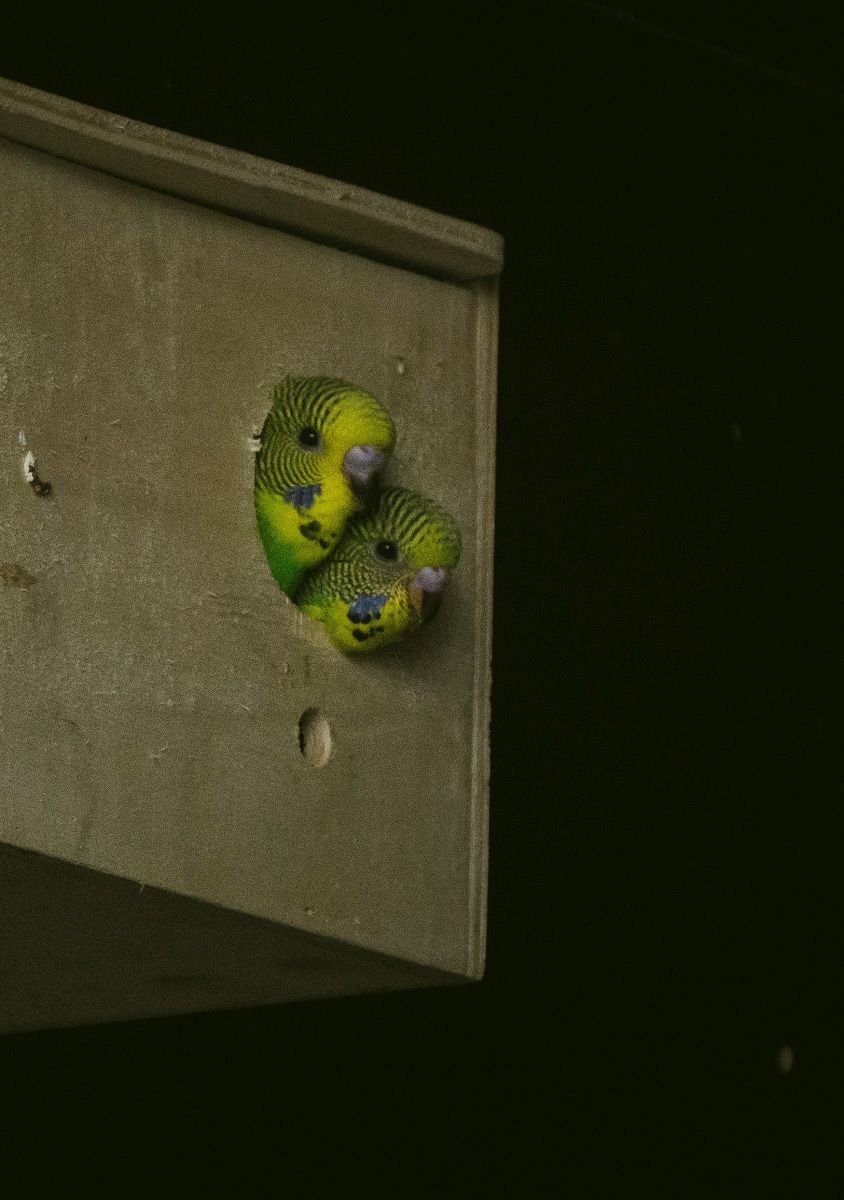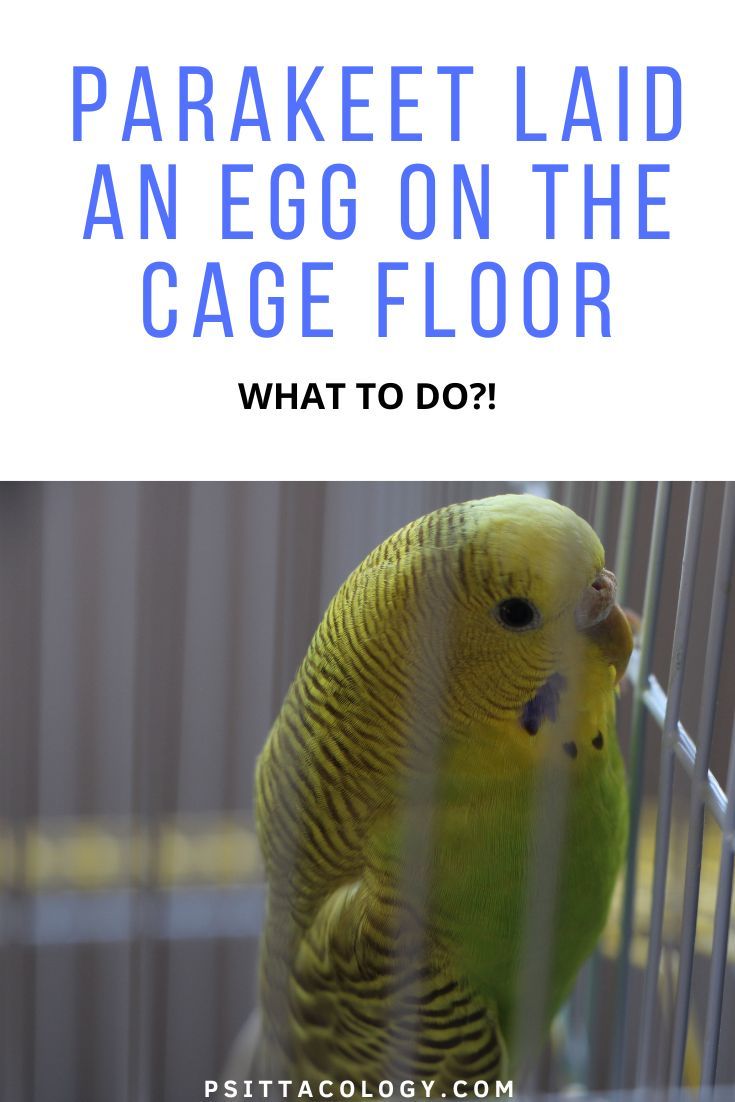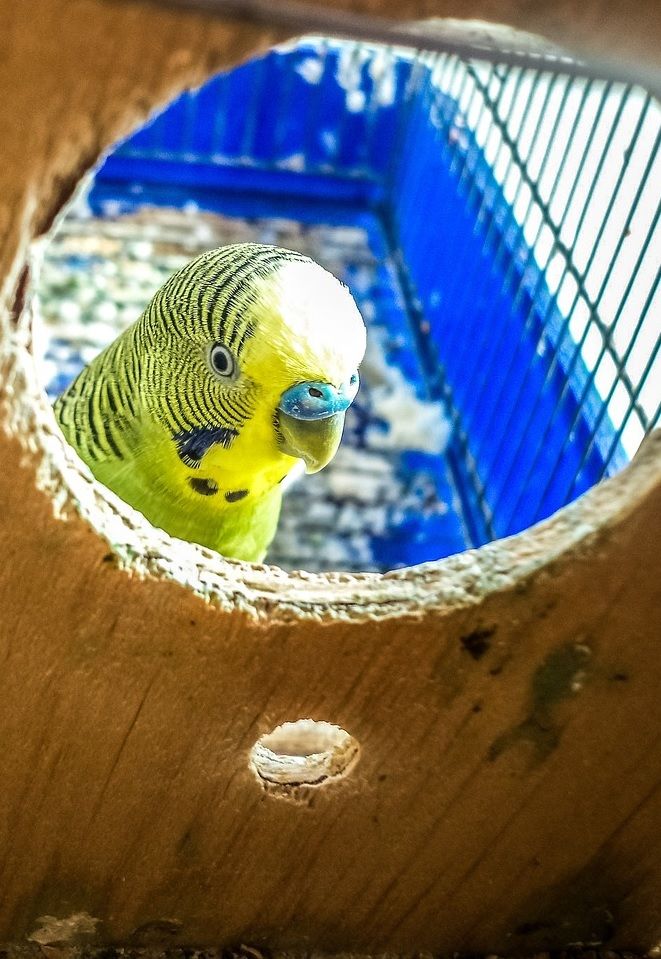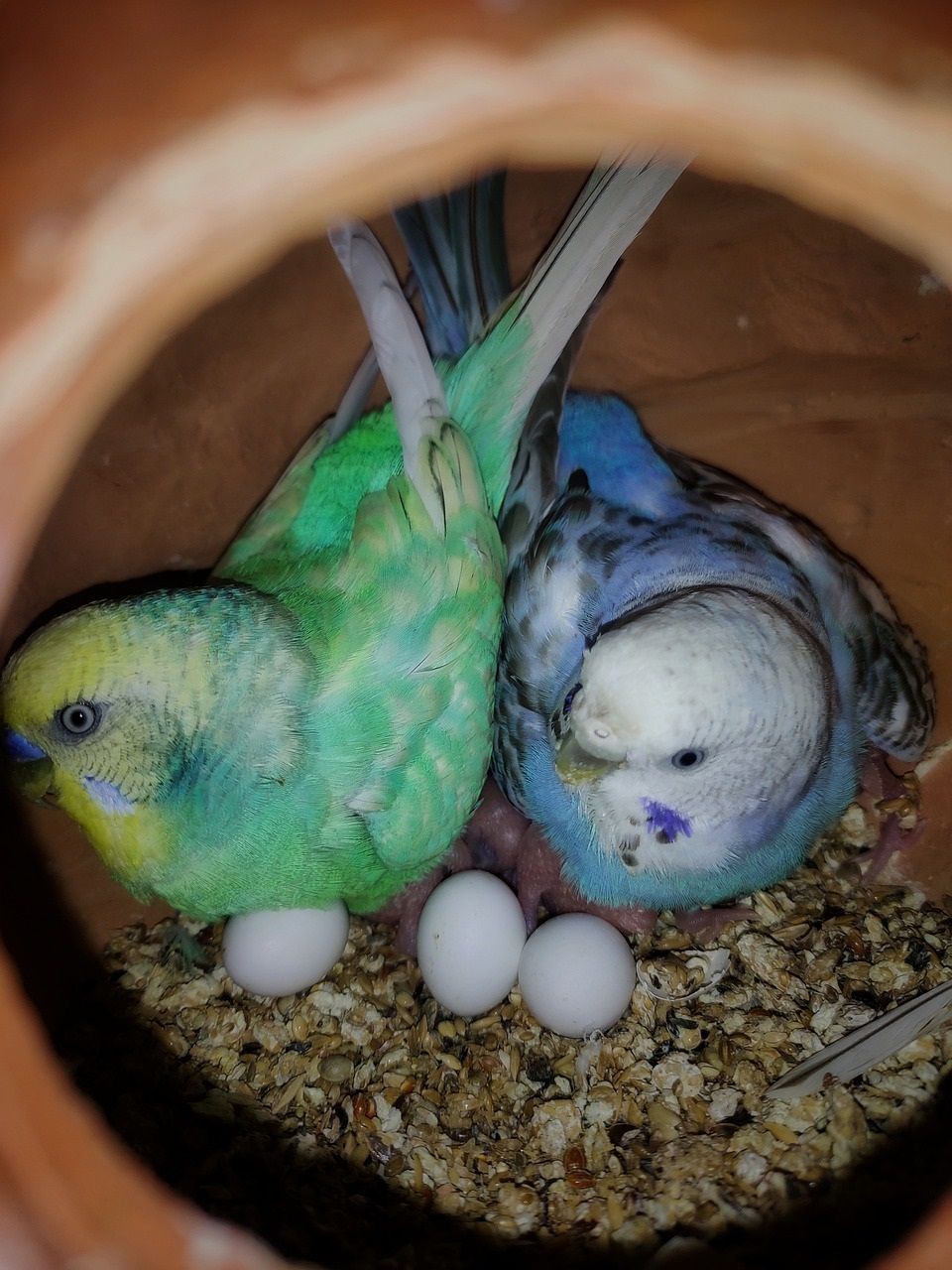If you’ve just woken up to find an egg on the bottom of your parakeet’s cage, it’s easy to panic. What do you do?! Should you try to save the egg? Will your bird become depressed if you take it away? What if it has smashed? Will there be more?
So many questions! Don’t worry: your parakeet will be fine, but there are a few steps you should take. Below, we’ll have a look at what you need to know and what you should do if your parakeet laid an egg on the cage floor.
This post contains affiliate links. If you make a purchase, a small percentage will go directly to Psittacology at no additional cost to you. Thank you for supporting Psittacology!
Should you breed your parakeets?
Before we go into anything else, I want to stress one very important point about parrots laying eggs. Whether you think the egg you found is fertile or not, if you’re not an experienced bird owner with the means and dedication to breed your parakeet, you shouldn’t try to save it.
The reason for this is that raising baby birds is a huge commitment. The parents need a proper nest box, the hen requires a special extra-nutritious diet, and you need to be prepared to raise the chicks yourself if something goes wrong.
Do you know how to hand-feed a newly hatched baby budgie? Are you prepared to feed every few hours? Are you able to accept that chicks may not make it? Do you have the budget to provide them with all they need, including increased vet visits?
If your parakeet has ended up laying her egg(s) on the cage floor, that more than likely means you’re not prepared. Save your bird and yourself the strain of trying to raise any babies!
PS: Consider how many rescue parakeets are already sitting in shelters waiting for a home. If you’d like to expand your flock, why not adopt one of these instead of bringing more into the world?

Why has my parakeet laid an egg on the cage floor?
Both single hens and parakeets kept in pairs may lay eggs on the floor of their cage. The location of the egg in itself isn’t something to worry about. It just means your bird wasn’t able to find a suitable place to lay!
As we’ll go into in more detail below, this doesn’t mean you need to run out and buy a nest box for the hen. An egg appearing on the cage floor, in a food bowl or in other unexpected places is just something that happens sometimes when you keep a female parrot.
If your parakeet does have a suitable nest box and you find a whole or smashed egg on the cage floor, she may have ejected it on purpose. This can happen if she thinks something is wrong with the egg.
What should I do with the egg? 3 important steps
This is the part you’ve probably been wondering about. We’ve learned it’s OK and not worrisome in itself if your parakeet lays an egg on the cage floor. We’ve also learned that you shouldn’t try to save the egg unless you’re ready for baby birds, which few casual parakeet owners are.
Basically, your main goal now is to get the hen to stop laying eggs. They’re not going to hatch anyway, so you don’t want her to waste precious nutrients and resources on them!
Tip: If the egg has smashed, you can wait things out. Your hen will know it’s not viable, and she may or may not choose to replace it. If she does, go ahead and move on to the steps below.

Step 1: Dummy egg clutch
If you don’t do anything, your parakeet will likely continue to lay until she’s produced a full clutch. To prevent this, procure some fake budgie eggs.
As soon as one egg appears, whatever its location, place up to 7 dummy ones around it to signal to her that she’s done. This should usually do the trick.
Step 2: Remove the original egg if needed
As for the original egg, if your parakeet has no mate (meaning it’s definitely not fertilized), you can leave it. If you think it may be fertilized, it’s best to remove it to prevent a baby bird from developing if she decides to try and incubate it. You can freeze it and then toss it.
If you feel like throwing away a fertilized egg is cruel, don’t worry. Studies of chicken eggs have shown that a baby bird inside an egg will start to become aware—including gaining the ability to feel pain—only after several days of incubation.
In the first few days, scientists agree that no pain can be felt. So, as long as you act quickly, no suffering will be caused. And Mom won’t be upset as long as you replace it with a clutch of dummy eggs.
Step 3: Wait
After placing the dummy eggs, some birds will be uninterested in their “clutch”. If this is the case, you can remove it after a few days.
If one or both parents are sitting on the eggs, just leave them to it until the hatch date passes. After up to 30 days, they’ll almost always realize the attempt was unsuccessful and will likely lose interest.
Preventing unwanted egg-laying
As mentioned earlier, laying eggs places a real strain on a female parakeet’s body. It requires her to use up much of her calcium reserves and a huge amount of nutrients, not to mention the fact that things can go south if an egg gets stuck.
As such, unless you’re an experienced breeder, you should do your best to avoid egg-laying in the first place. Of course, there’s no way to prevent it from happening altogether, but you may be surprised to hear there are actually things you can do to discourage it!
Preventing unwanted egg-laying is done by creating an environment that isn’t suitable for raising young. You want your bird to think it’s the wrong season and that the necessary resources are not present.
Here are some things you can do to achieve this:
- Don’t place any items in the cage that can be construed as a nest. No nest boxes, coconut hides and caves, please!
- Make sure your parakeet gets 12 hours of uninterrupted darkness and sleep. Shorter days mean springtime is here, which causes parrots to become frisky.
- Rearrange the cage regularly. It keeps things new and exciting for your bird, plus it discourages breeding.
- Avoid petting your parakeet anywhere but its head. Body touching will be interpreted as a sexual gesture and might make her broody!
- Remove mirrors (they are not good for parakeets anyway) and any toys that your bird is a little overly interested in.

When should you call a vet?
What do you do if your efforts to stop unwanted egg-laying have failed and it now appears your parakeet is struggling to lay her egg? Reproductive issues are very serious, and egg binding in particular warrants an immediate vet visit.
Some signs that you need to ring your avian vet without delay include:
- Inability to perch due to partial or complete paralysis of the legs (bird may end up sitting on the bottom of the cage).
- Obvious straining, possibly with a bulge visible in the vent area.
- Tail bobbing and labored breathing.
- Fluffed up feathers.
Other serious issues your budgie may experience while trying to lay eggs include egg yolk peritonitis (egg yolk accidentally enters the abdominal area and causes infection) and cloacal prolapse. These warrant an immediate vet visit.
If your budgie has laid more than one “wonky” egg that’s soft-shelled, shell-less or misshapen, you may also want to call your vet. She may be suffering from malnutrition or something else could be wrong.

Frequently asked questions
No. Unless you have serious breeding plans, it’s better not to provide a nest box. These can stimulate broodiness in your female budgies, causing them to lay eggs, which is a serious strain on their bodies.
A solo female parakeet may only lay eggs very sporadically (ie., every few years). If she’s quite productive, or if you keep a pair – especially if you haven’t taken measures to prevent egg-laying – you can expect eggs at least every spring.
Once the laying has started, new eggs will likely appear every 24-48 hours until a full clutch of up to eight has been produced.
If your budgie won’t stop laying eggs, you’ve got a chronic egg layer on your hands. I recommend contacting your vet if the previously discussed tricks to preventing broodiness don’t work.
If you own a budgie pair, you can assume eggs are incoming at some point if you spot the male mounting the female. Other clear signs include the female shredding everything in sight (nest building) and becoming territorial of certain spots.
If you see a slight bulge in your female budgie’s vent area, that’s a sure sign eggs are imminent. Keep a close eye on her to make sure the egg is laid successfully.
If you have any more questions about parakeets laying eggs on their cage floor or if you’d like to share your own experiences with broody ‘keets and how to deal with them, don’t hesitate to leave a comment below!
Rosskopf, W. J., & Woerpel, R. W. The Vet’s Corner-Egg-binding. AFA Watchbird, 11(2), 4-9.



Budgie laid egg it is broken at bottom of cage under the grate. Should I put a fake clutch there even if she can’t get to it?
Hey! No, just clean up and monitor her. If she lays any eggs in a regular spot and is trying to incubate them, you can go the fake clutch route. Good luck!